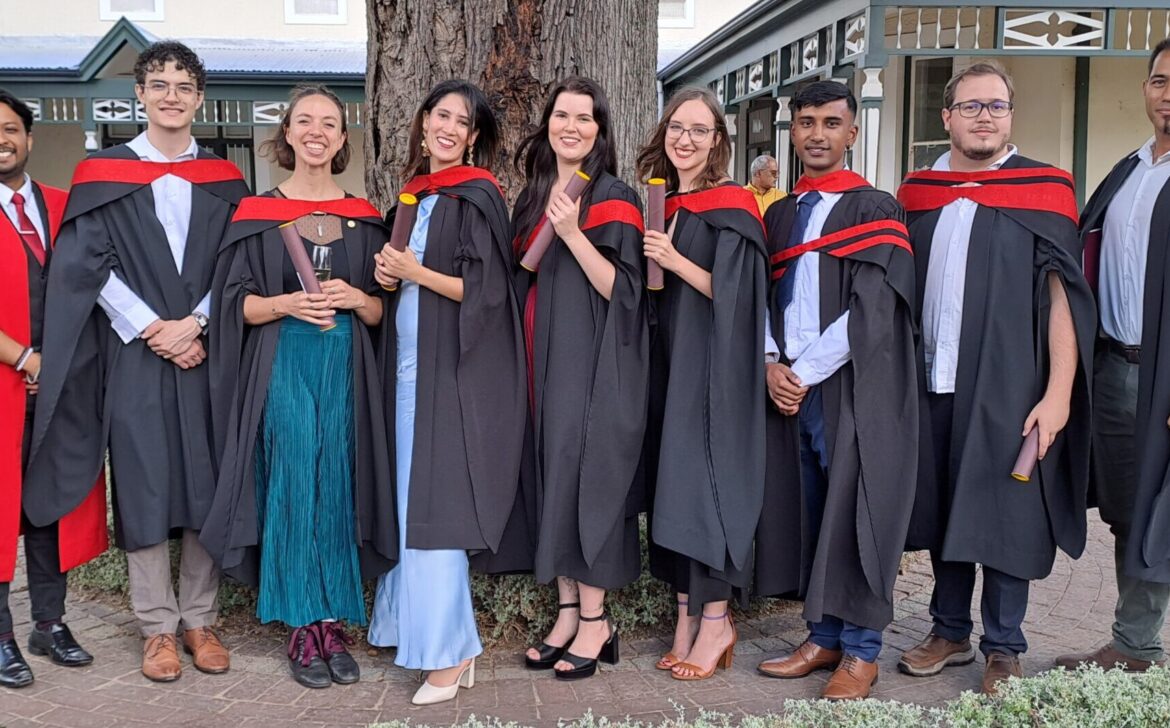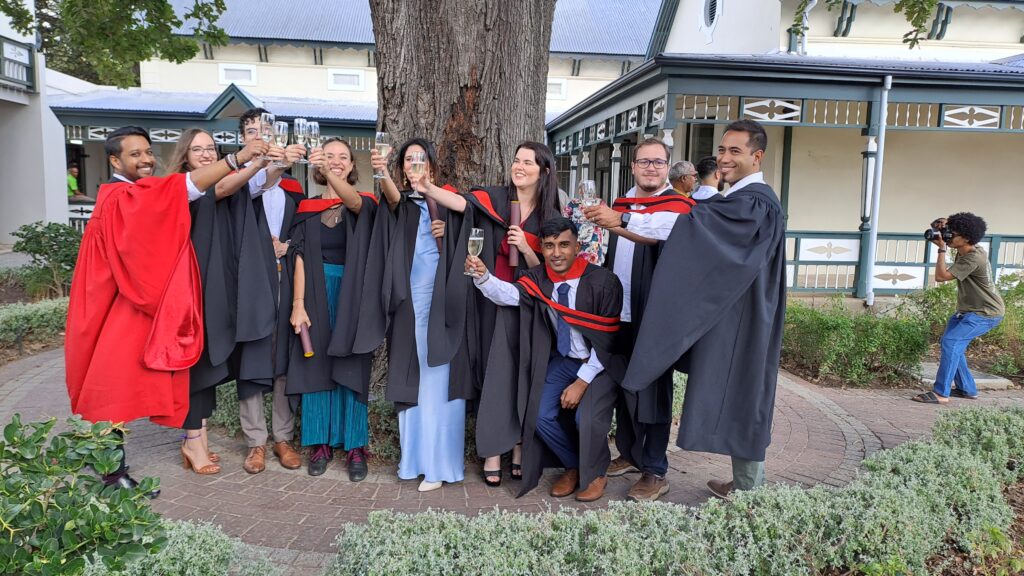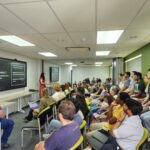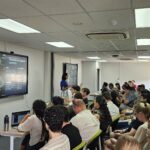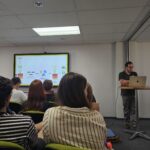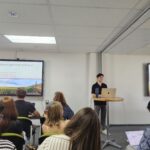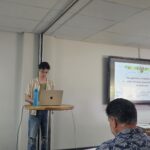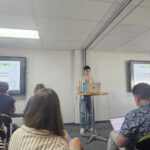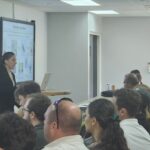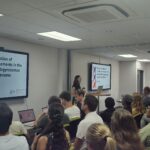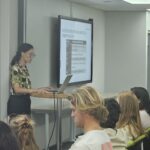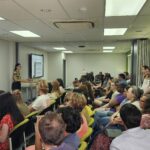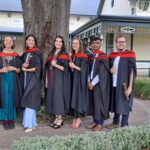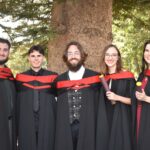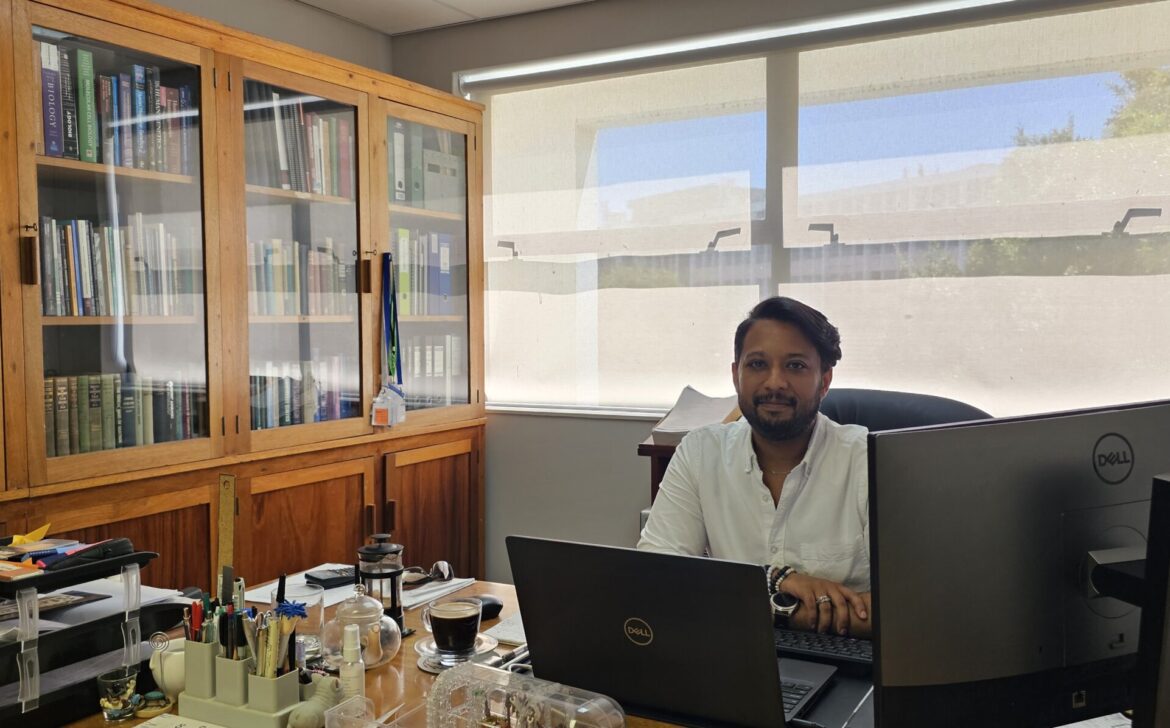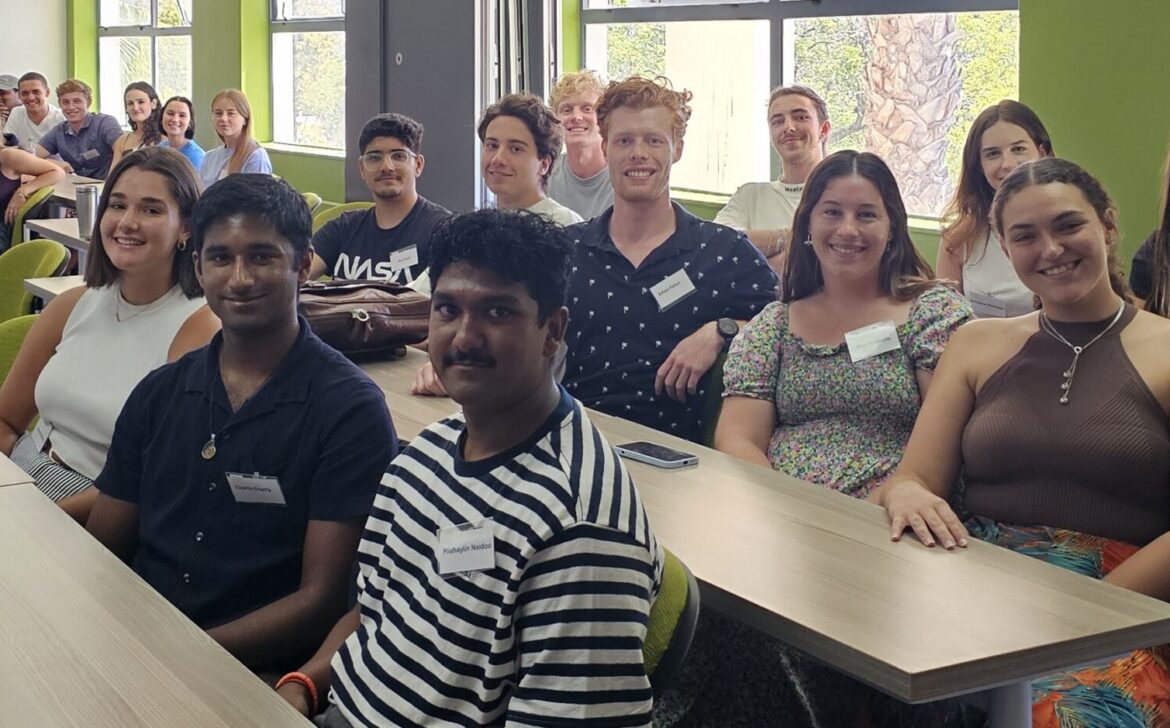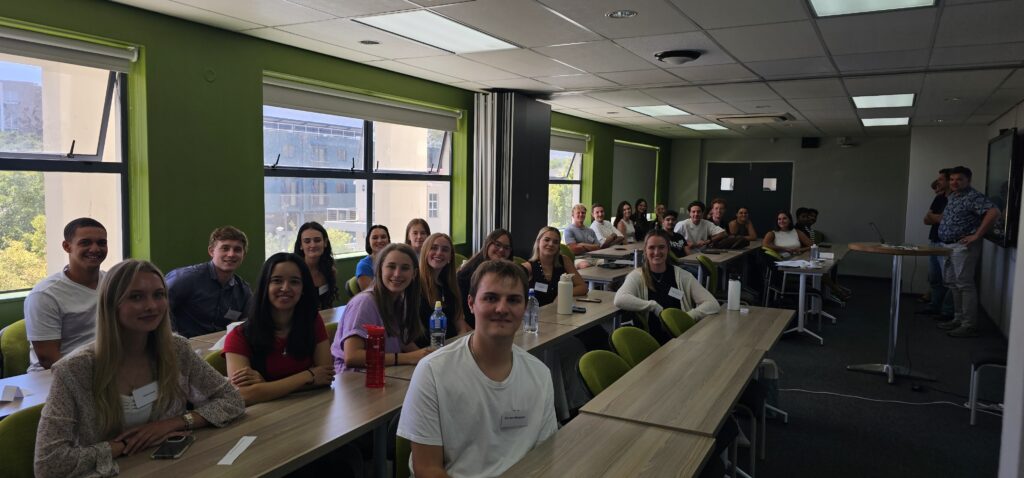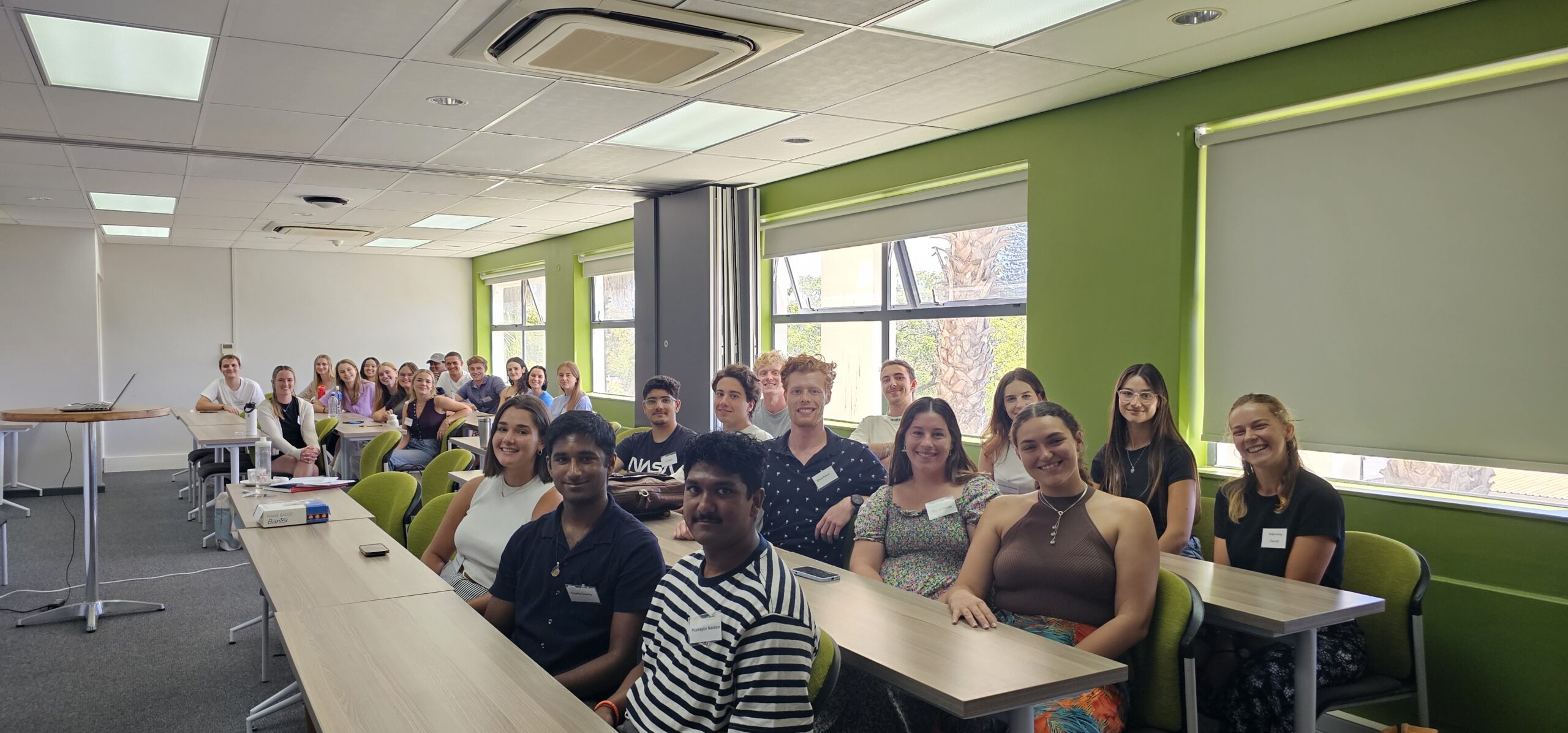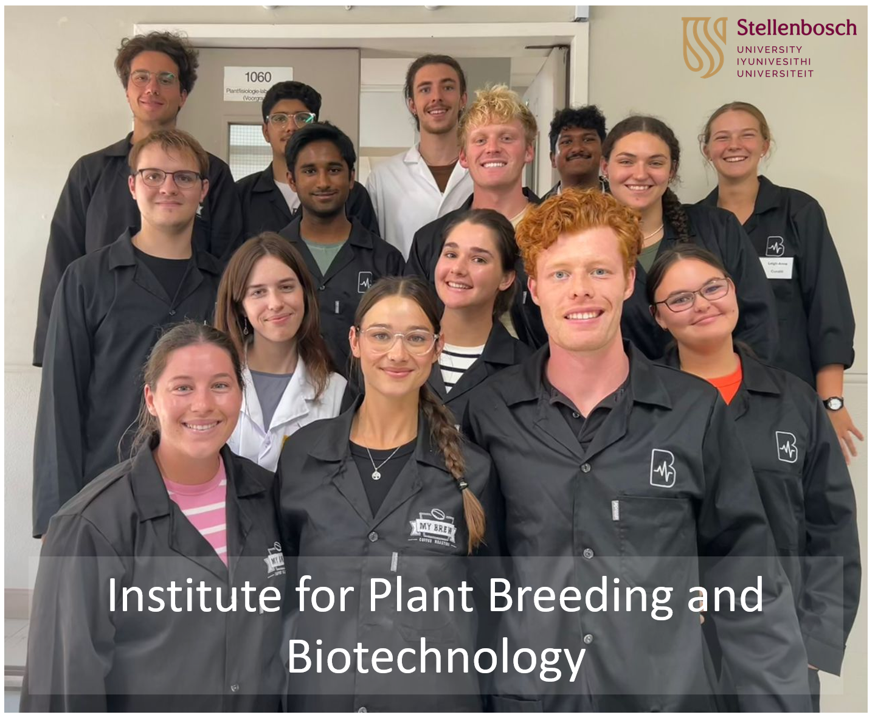The Department of Genetics at Stellenbosch University is home to a vibrant and diverse academic community of
23 staff members whose research spans the full spectrum of genetics from plants and animals to human health. Closely integrated into this ecosystem is the
Institute for Plant Breeding and Biotechnology (IPBB), a leading centre for innovation in molecular biology, genetic engineering, and applied breeding. Together, these groups contribute to a rich, interdisciplinary research environment with a global reach.
As the departmental scribe, I’ve long wanted to capture the remarkable breadth of research taking place across our community. This year, I invited colleagues to share highlights from their research programs milestones that reflect not only the depth of their work but also its international relevance and collaborative nature. What follows is a curated snapshot of several academics whose work continues to expand the department’s global footprint:
Prof. Anna-Maria Botha-Oberholster, a full professor in the Department of Genetics, is a highly accomplished researcher whose work in plant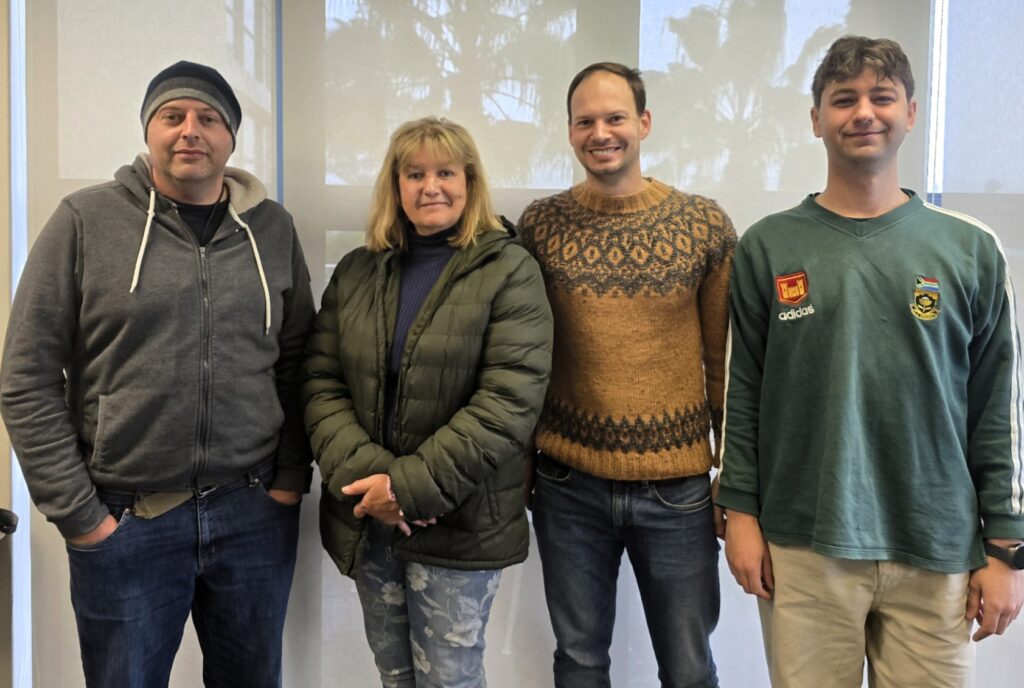 genomics has consistently bridged fundamental science with real-world agricultural applications. She is a B-rated scientist by the National Research Foundation and one of the department’s most cited academics, with over 5,800 citations, an h-index of 39, and more than 150 peer-reviewed publications this exclude her extensive list of patents, reports and book chapters. Her research has been instrumental in shaping the scientific understanding of host-pathogen dynamics and functional plant biology.
genomics has consistently bridged fundamental science with real-world agricultural applications. She is a B-rated scientist by the National Research Foundation and one of the department’s most cited academics, with over 5,800 citations, an h-index of 39, and more than 150 peer-reviewed publications this exclude her extensive list of patents, reports and book chapters. Her research has been instrumental in shaping the scientific understanding of host-pathogen dynamics and functional plant biology.
In 2025, she co-authored the article “Evaluating long-read assemblers to assemble several Aphididae genomes,” published in Briefings in Bioinformatics. This study evaluated genome assembly tools for agriculturally important aphid species, contributing valuable genomic resources for the field. However, she has also co-authored two review papers: “Russian wheat aphid: A model for genomic plasticity and a challenge to breeders,” and “Unlocking Wheat Drought Tolerance: The Synergy of Omics Data and Computational Intelligence,”
Her international profile is further strengthened by her role as the South African partner in the EU-funded NATUREBIOPROMO project, part of the Biodiversa+ and Water4All initiatives. This four-year collaboration brings together scientists from Portugal, Brazil, Italy, the Czech Republic, and South Africa, aiming to develop nature-based biotechnological solutions that reduce pesticide dependence while promoting agricultural sustainability. The project focuses on harnessing beneficial plant microbiomes and natural bioactives to improve crop health and resilience. Prof. Botha-Oberholster’s involvement ensures that African biodiversity and research perspectives are meaningfully included in this international dialogue on ecological innovation and food security.
She leads a dynamic research team composed of Dr. Hendrik Swiegers (postdoctoral fellow), a dedicated bioinformatician / technical officer (Dr F Burger), and a cohort of postgraduate students. Her group specialises in host-pathogen genomics, functional biology, and systems-level approaches to plant defence. With a long-standing reputation for mentorship, collaboration, and high-impact science, Prof. Botha-Oberholster remains one of South Africa’s most respected figures in agricultural molecular sciences.
Prof. James Lloyd, a C-rated scientist and a associated professor based at the Institute for Plant Biotechnology and breeding (IPBB), has long been at the forefront of plant metabolic engineering. With over 3,900 citations, an h-index of 28, and +43 publications, his research continues to shape both theoretical and applied aspects of plant biotechnology, particularly in starch metabolism.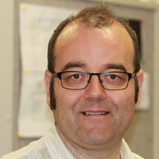
His most recent article, accepted in Biotechnology Journal, is titled “Simultaneous Repression of GLUCAN WATER DIKINASE 1 and STARCH BRANCHING ENZYME 1 in Potato Tubers Leads to Starch with Increased Amylose and Novel Industrial Properties.” This study investigates how post-transcriptional gene silencing of two key starch-modifying enzymes (SBE1 and GWD1) alters the physical and chemical structure of potato starch. The results revealed increased amylose content, altered granule morphology, and changes in viscosity all of which hold promise for creating tailored starches with enhanced industrial applications. The research provides a compelling in planta strategy for designing healthier, functionally optimized storage starches.
In support of this work, Prof. Lloyd was awarded a three-year NRF Rated Researcher Grant titled “Making potatoes resistant to virus attack and healthier to eat using genome editing.” The project uses CRISPR technology to confer resistance to potato virus Y (PVY) while also engineering the tuber starch to be both less digestible h elping reduce the risk of type II diabetes and lower in acrylamide formation during frying. The project is a collaborative effort involving Dr. Manuela Campa, Prof. Johan Burger (both Stellenbosch University), and Dr Zanele Mdodane (North West University) , and reflects a strategic blend of nutritional, health, and agricultural goals. Prof. Lloyd’s research demonstrates how fundamental molecular biology can be harnessed to address real-world challenges ,advancing food safety, crop durability, and industrial processing all within a single framework.
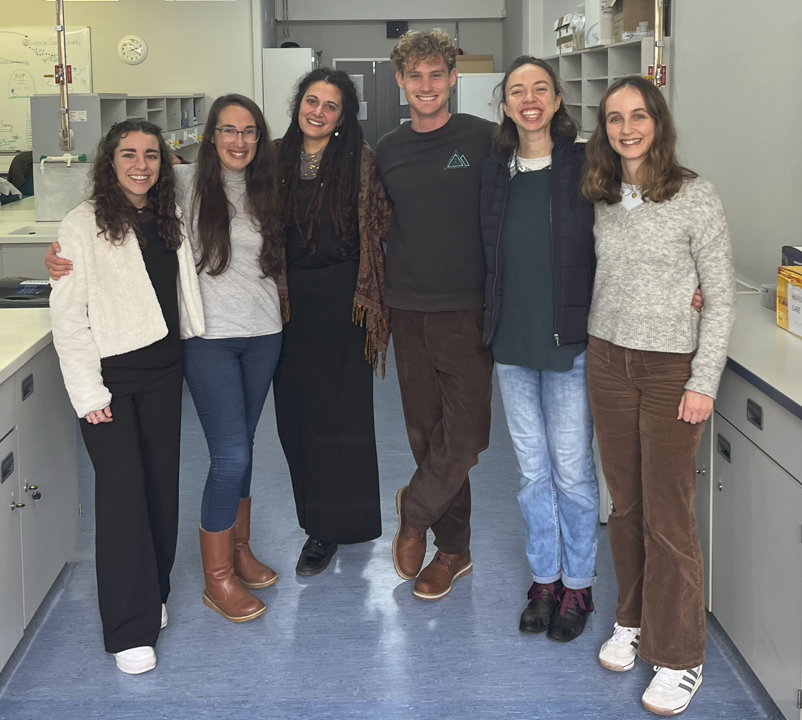
Prof. Aletta Bester-van der Merwe an associated Professor plays a leading role in marine conservation genetics and is a cornerstone of the department’s internationally recognized work on elasmobranch (shark and ray) population dynamics. With an h-index of 22, i10-index of 40 and +70 publications , she continues to be a high-impact researcher shaping the field of marine molecular ecology and conservation.
Among various national and international consortiums Prof. Bester-van der Merwe is a key member of the COEXISTENCE project (2025–2028), which investigates socio-ecological conflicts between fisheries and marine megafauna, including sharks and toothed whales, in the South West Indian Ocean. As part of the South African team, alongside Prof. Peter Teske, she contributes genetic insights, which focuses on genetic connectivity in the Mozambique Channel. Her role involves identifying conservation units through advanced population genomics, supporting evidence-based strategies for transboundary marine biodiversity protection. The project, coordinated by Dr Paul Tixier (IRD, France), includes partners from France, Mozambique, Madagascar, the Comoros, and South Africa, emphasizing Aletta’s international research leadership in complex, multi-jurisdictional systems.
Prof. Bester-van der Merwe leads a thriving research group, supported by a network of postgraduate and postdoctoral researchers. In her 13 years as a principal investigator, she has supervised and co-supervised 10 PhD, 15 MSc, and 25 Honours students. Her current postdoctoral fellows, Dr Juliana Klein and Dr Michaela van Staden are actively engaged in the Shark and Ray Genetics laboratory under her mentorship, contributing to foundational and applied research in marine conservation genetics.
Dr. Nathaniel McGregor, a senior lecturer in the department, is making substantial contributions to global psychiatric genetics through internationally collaborative research. With over 2,200 citations, an h-index of 17, and +21 publications, Dr. McGregor’s academic footprint reflects the depth and relevance of his work within the mental health genetics field.
depth and relevance of his work within the mental health genetics field.
In 2025, he co-authored two publications that deepen our understanding of the genetic basis of complex mental health disorders. His first, published in Biological Psychiatry, is titled “New Genomics Discoveries Across the Bipolar Disorder Spectrum Implicate Neurobiological and Developmental Pathways”. This large-scale review, published ahead of print, synthesizes findings from the Psychiatric Genomics Consortium and highlights emerging signals linked to bipolar disorder subtypes, and provides insights into the neurobiological and developmental pathways previously uncharacterized for this disorder. These new findings hold promising implications for treatment options.
His second and arguably most prominent contribution is as co-author of a landmark paper in Nature Genetics, titled “Genome-wide analyses identify 30 loci associated with obsessive–compulsive disorder (OCD)”. This genome-wide association meta-analysis combined over 53,000 OCD cases and more than two million controls, identifying 30 significant loci and over 249 effector genes. The study reveals that approximately 90% of OCD heritability is polygenic and involves excitatory neurons in the hippocampus and cortex. These findings, along with validation of the utility of advanced molecular methodologies such as fine-mapping, and the use of polygenic risk scores to improve statistical power in complex disorders studies offers a foundation for follow-up studies, including functional work. Together, these publications reflect Dr. McGregor’s integral role in globally networked psychiatric genomics and reinforce the department’s growing presence in large-scale, international research consortia.
Dr. Christell van der Vyver a lecturer and a C2-rated scientist is contributing significantly to South Africa’s biotechnology landscape through impactful academic research and str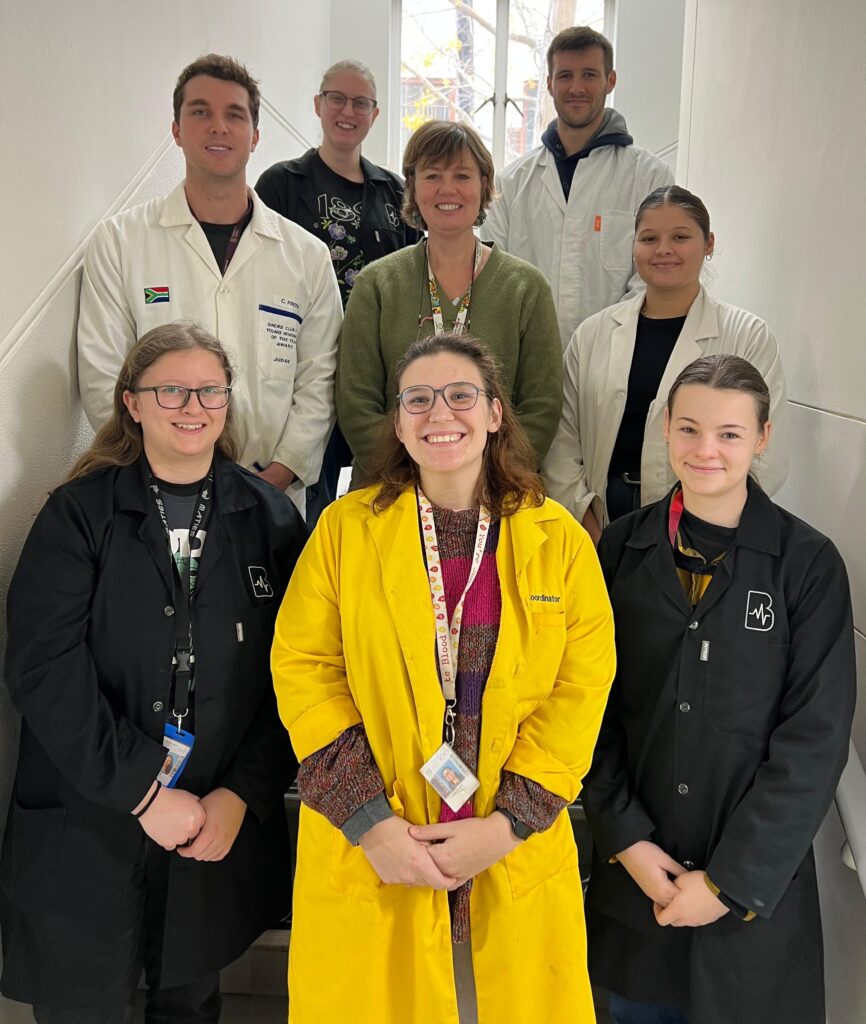 ategic industry partnerships, particularly in the field of sugarcane improvement. With over 800 citations, an h-index of 16, and +30 publications, her scholarly record demonstrates both depth and sustained influence within applied plant biotechnology.
ategic industry partnerships, particularly in the field of sugarcane improvement. With over 800 citations, an h-index of 16, and +30 publications, her scholarly record demonstrates both depth and sustained influence within applied plant biotechnology.
She recently secured a two-year industry contract with ABF SUGAR (PTY) LTD, a global sugar leader with operations across ten countries, including Southern Africa. The project focuses on genetically modified sugarcane lines engineered to express the Cry51Aa2 protein; a modified insecticidal gene with the potential to offer resistance against the yellow sugarcane aphid (YSA), a serious regional pest. Ongoing contracts also include an agreement with the South African Sugar Association (SASA), focusing on the establishment of modern gene editing technologies for sugarcane.
In 2025, Dr. van der Vyver also authored two peer-reviewed publications that advance sugarcane genomics and stress resilience. Her first article, published in Physiologia Plantarum, titled “Comparative Transcriptomic Analysis of AtBBX29 Transgenic and Wild Type Sugarcane Exposed to Drought Stress”, provides new insights into the molecular mechanisms underlying drought tolerance in genetically modified plants. Her second, an invited review published in In Vitro Cellular & Developmental Biology Plant, titled “Sugarcane (Saccharum spp. hybrids) Biotechnology Research in South Africa”, offers a comprehensive overview of the country’s sugarcane biotechnology advances, tracing progress from early cultivar development to recent genomic breakthroughs. Together, these outputs emphasize Dr. van der Vyver’s leadership at the intersection of fundamental research and practical agricultural impact.
Dr. Marlon-Schylor Le Roux, a rising academic in the department, is gaining recognition for his innovative work at the intersection of molecular biology, artificial intelligence, and sustainable agriculture.  Although still early in his academic career having held his position for just four years, Dr. Le Roux has already surpassed 102 citations, with +8 publication, showing the growing visibility and relevance of his research contributions.
Although still early in his academic career having held his position for just four years, Dr. Le Roux has already surpassed 102 citations, with +8 publication, showing the growing visibility and relevance of his research contributions.
In 2025, he co-authored a comprehensive review titled “Russian wheat aphid: A model for genomic plasticity and a challenge to breeders”, which examines the evolutionary flexibility of Diuraphis noxia, a globally significant cereal pest. The article offers both a historical and molecular perspective on the pest’s ability to overcome host resistance and control methods, positioning it as a model organism for studying virulence and genomic adaptation.
He also led a publication titled “Unlocking Wheat Drought Tolerance: The Synergy of Omics Data and Computational Intelligence”, published in Food and Energy Security. This work addresses the urgent challenge of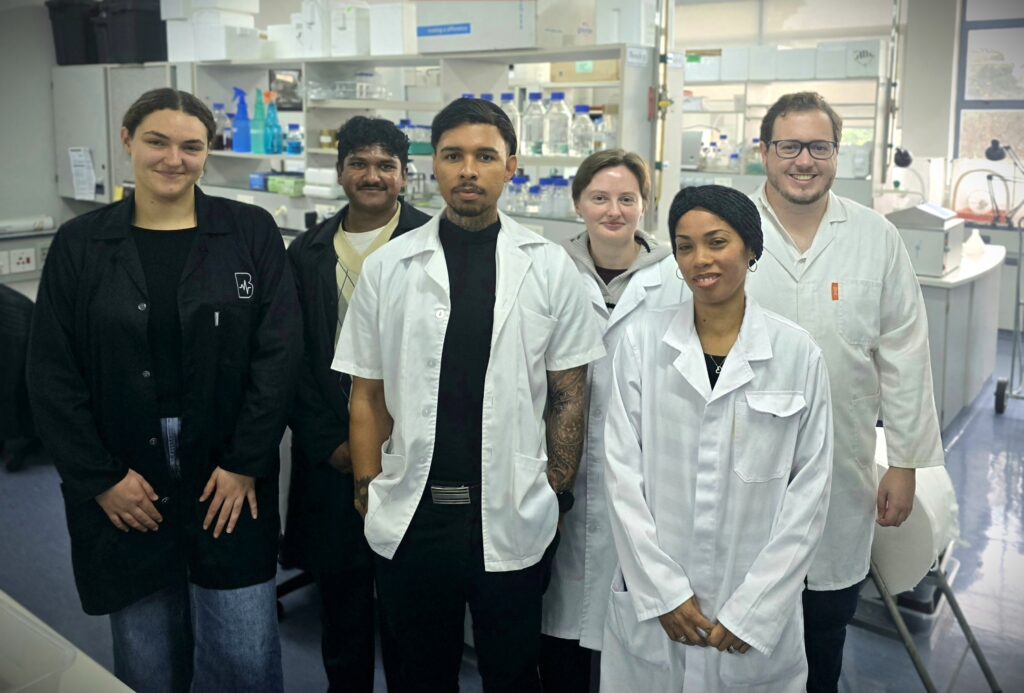 climate-induced yield loss in wheat and promotes the use of AI, particularly deep learning, to extract meaningful insights from omics datasets. The article advances the case for computational tools in identifying and deploying drought-resilient traits in crops.
climate-induced yield loss in wheat and promotes the use of AI, particularly deep learning, to extract meaningful insights from omics datasets. The article advances the case for computational tools in identifying and deploying drought-resilient traits in crops.
Dr. Le Roux’s research team consist of 5 members and his research leadership is further supported by three competitive research grants secured for 2025. The first, under the DSI High-End Infrastructure Programme (Phenomics Subfunding), supports a project on artificial intelligence, phonomics and molecular adaptation in commercial beans. He also holds an NRF Thuthuka grant to develop a CRISPR-based genome editing platform targeting stress resilience in cereal crops. In addition, he secured postdoctoral funding that enabled the appointment of Dr. Nadia Fisher-Smith, extending the research capacity of his program.Together, these achievements reflect Dr. Le Roux’s growing role in leading data-driven, future-facing crop improvement strategies with strong relevance for African agriculture and global food security.
The future
The Department of Genetics together with IPBB has long stood as a pillar of excellence its strength lying not in uniformity, but in the richness of its diverse research focus areas. From advanced plant biotechnology to human health and animal conservation, our academics are not only leading important work but are deeply committed to sharing their knowledge with others. Whether teaching undergraduates (as seen below) or supervising Honours, Master’s, or PhD students, they carry their expertise into the classroom and the lab with equal purpose.
As departmental scribe, I’ve had the unique opportunity to explore and reflect on these contributions. For early-career academics like myself, being surrounded by such dedicated and forward-thinking researchers is both grounding and energising. Their work honours the past, engages deeply with the present, and clearly lays foundations for the future a sentiment that aligns beautifully with the theme of our upcoming departmental symposium[

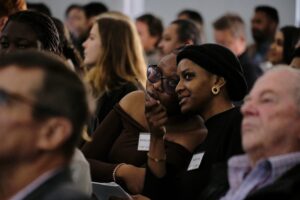






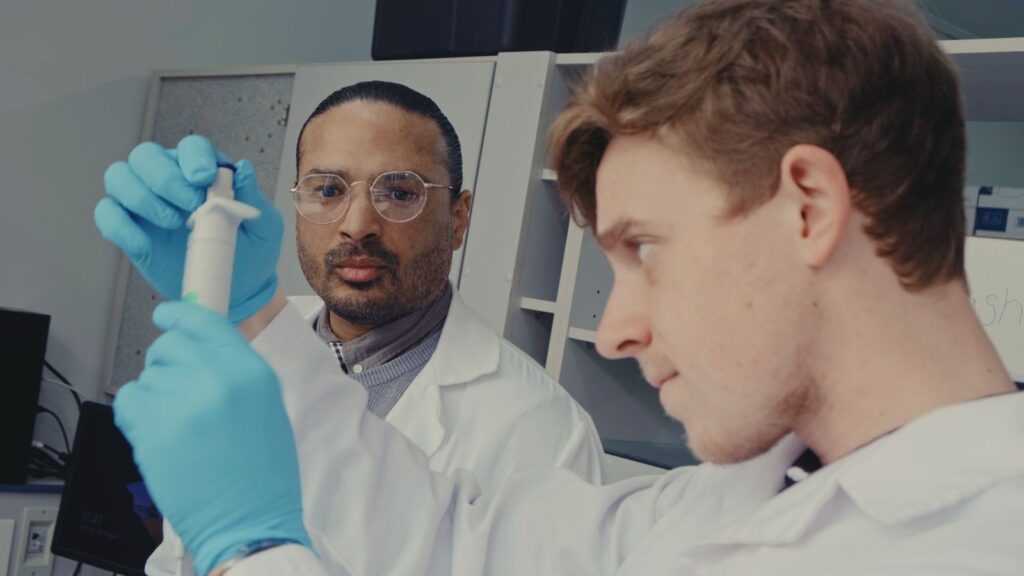

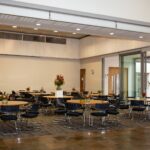






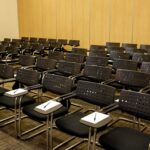
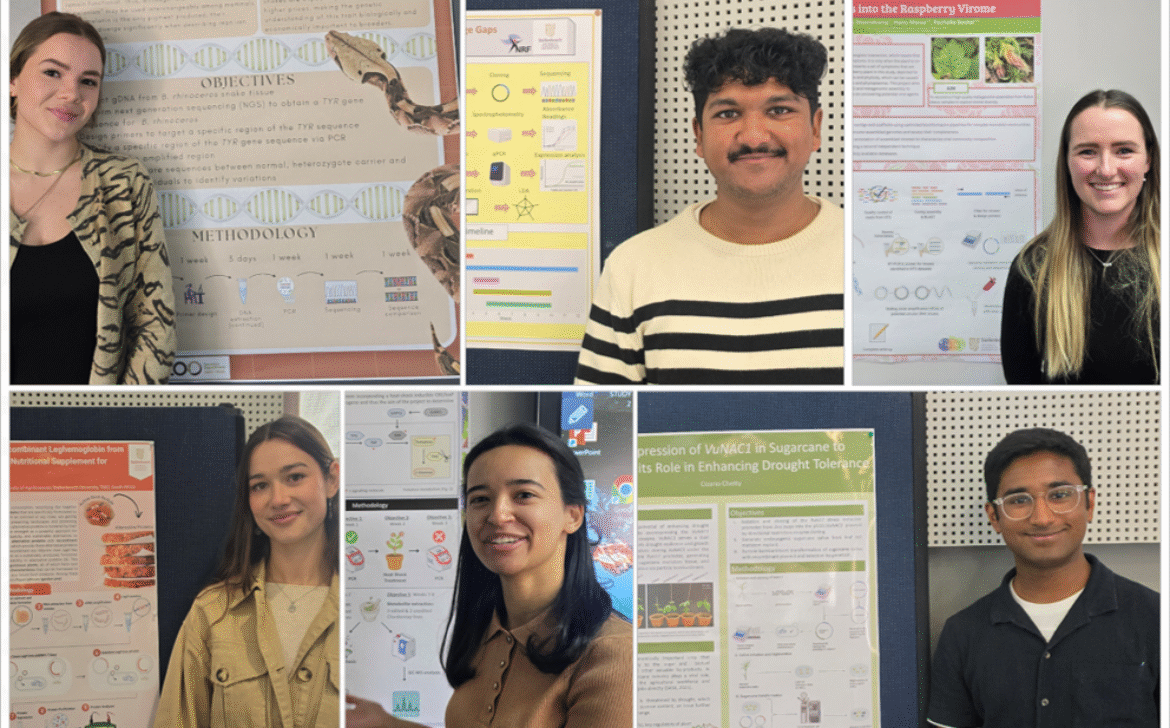
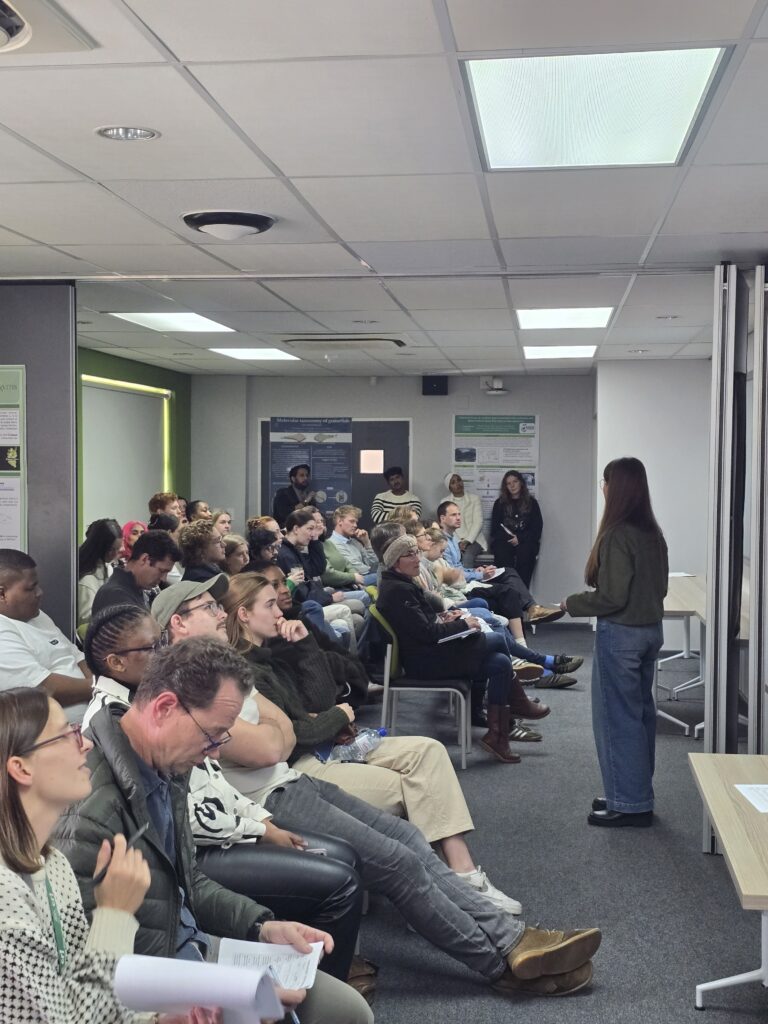
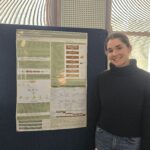
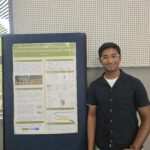

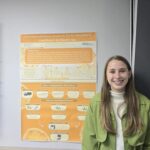
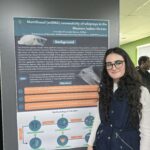


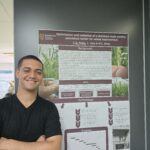

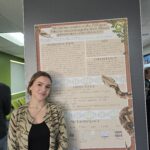

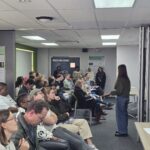
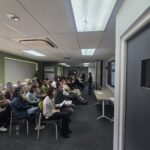
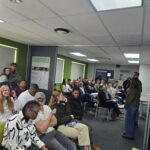



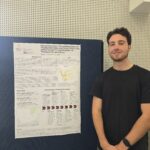
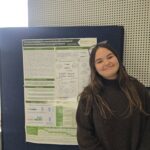
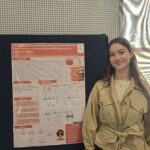
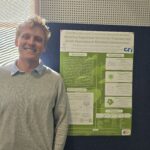





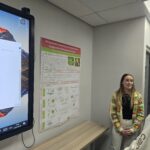


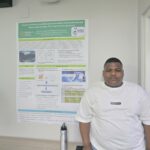
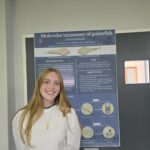
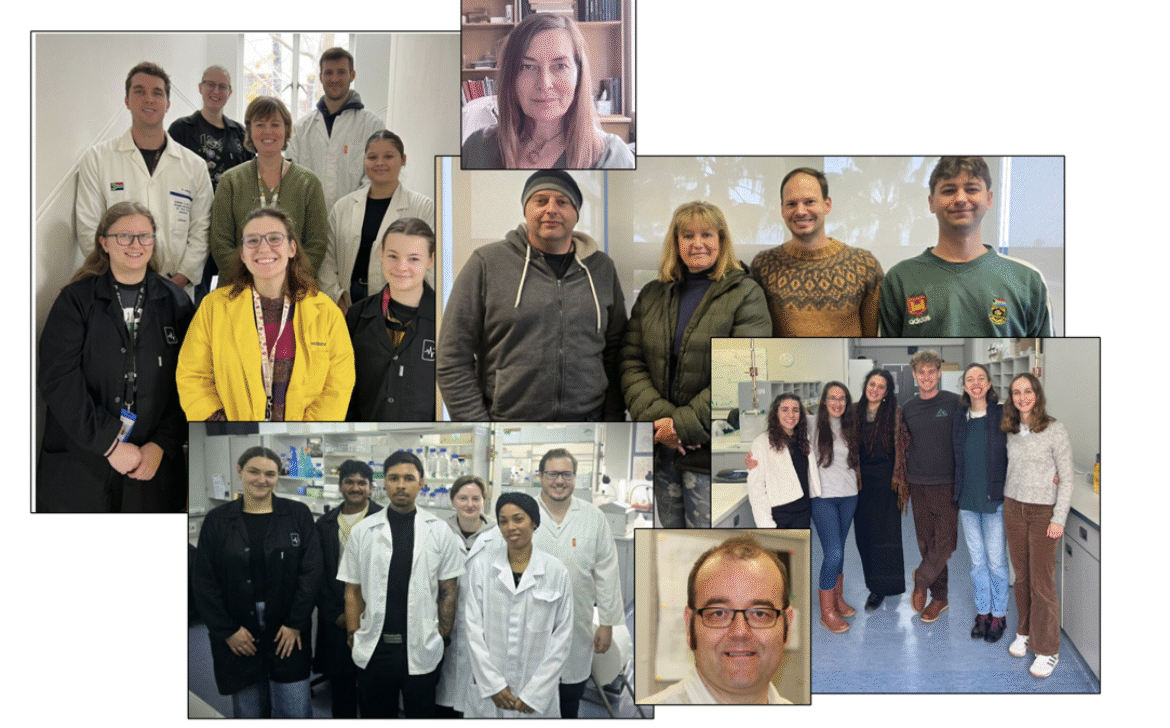
 genomics has consistently bridged fundamental science with real-world agricultural applications. She is a B-rated scientist by the
genomics has consistently bridged fundamental science with real-world agricultural applications. She is a B-rated scientist by the 

 depth and relevance of his work within the mental health genetics field.
depth and relevance of his work within the mental health genetics field. ategic industry partnerships, particularly in the field of sugarcane improvement. With over 800 citations, an h-index of 16, and +30 publications, her scholarly record demonstrates both depth and sustained influence within applied plant biotechnology.
ategic industry partnerships, particularly in the field of sugarcane improvement. With over 800 citations, an h-index of 16, and +30 publications, her scholarly record demonstrates both depth and sustained influence within applied plant biotechnology. Although still early in his academic career having held his position for just four years, Dr. Le Roux has already surpassed 102 citations, with +8 publication, showing the growing visibility and relevance of his research contributions.
Although still early in his academic career having held his position for just four years, Dr. Le Roux has already surpassed 102 citations, with +8 publication, showing the growing visibility and relevance of his research contributions. climate-induced yield loss in wheat and promotes the use of AI, particularly deep learning, to extract meaningful insights from omics datasets. The article advances the case for computational tools in identifying and deploying drought-resilient traits in crops.
climate-induced yield loss in wheat and promotes the use of AI, particularly deep learning, to extract meaningful insights from omics datasets. The article advances the case for computational tools in identifying and deploying drought-resilient traits in crops.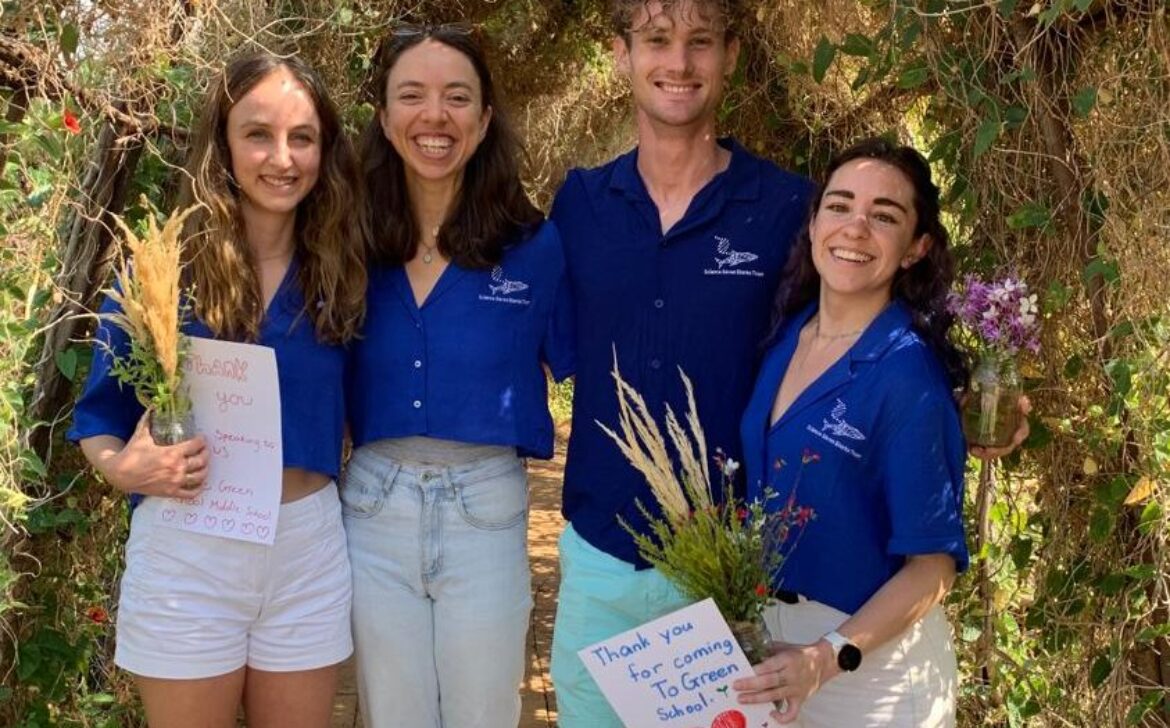
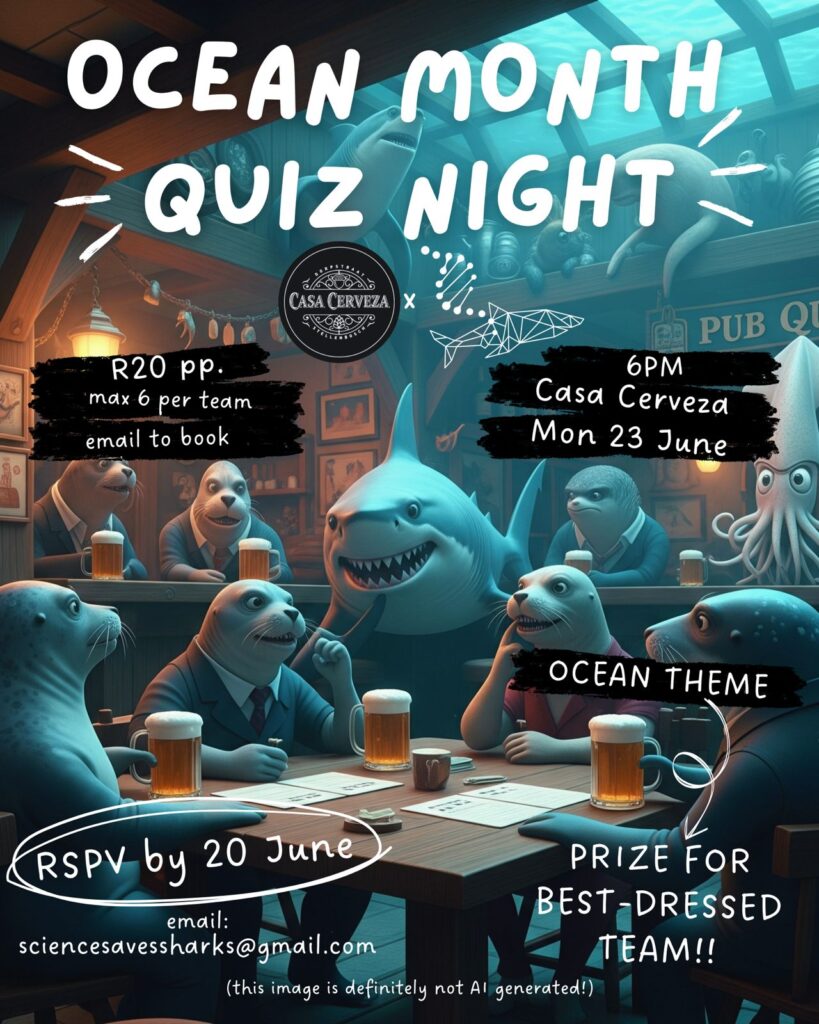
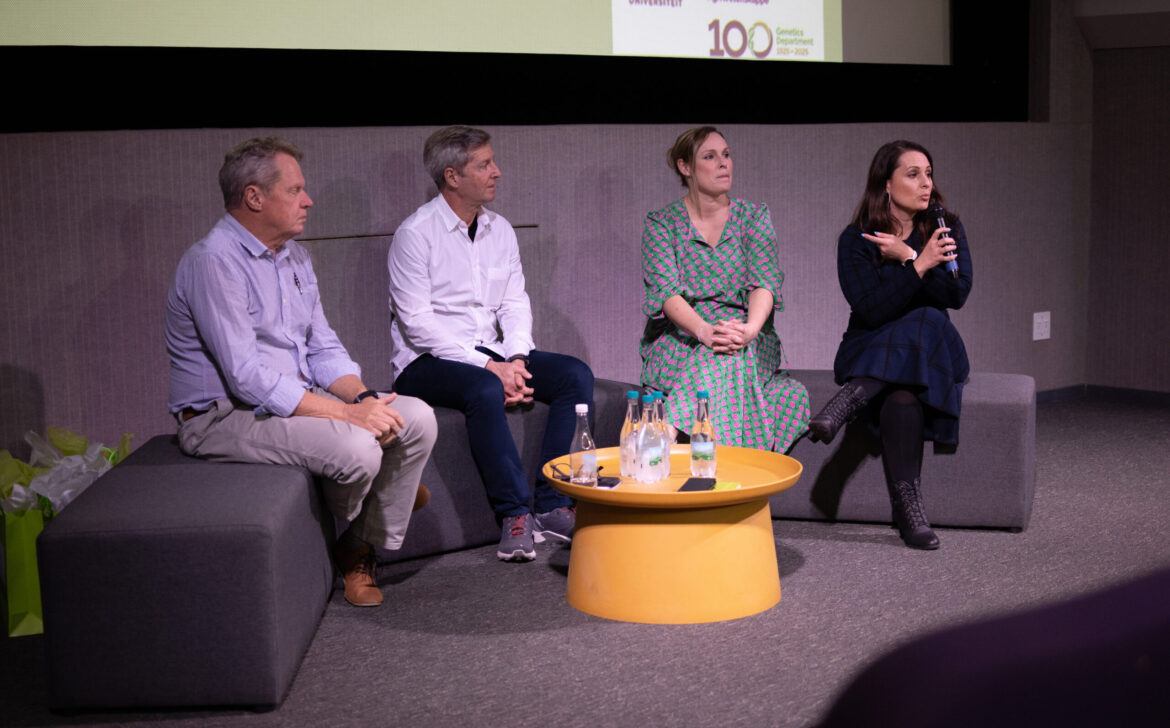

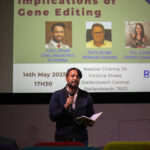
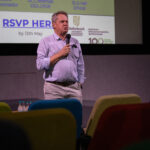
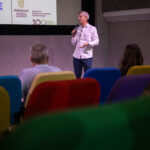
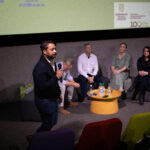
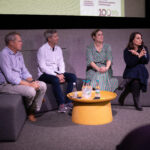
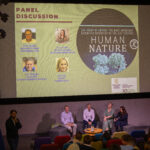

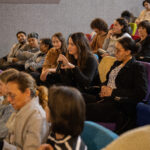
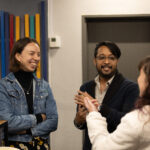
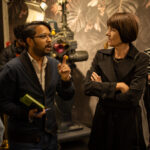

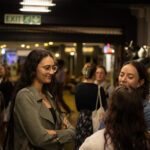


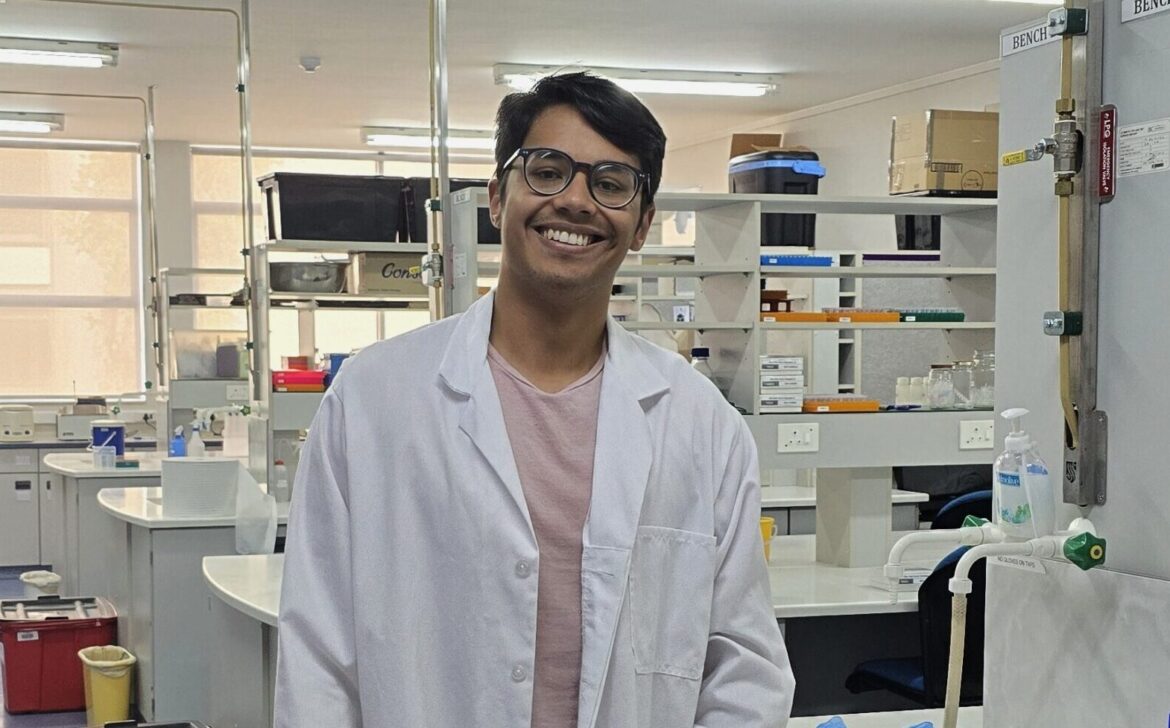
 epresent others who are doing it,” he says. His leadership approach is deeply rooted in listening and inclusion. “So much can be fixed if we just have clear channels of communication,” he adds, aiming to create a student network that is more connected, responsive, and representative.
epresent others who are doing it,” he says. His leadership approach is deeply rooted in listening and inclusion. “So much can be fixed if we just have clear channels of communication,” he adds, aiming to create a student network that is more connected, responsive, and representative.